General Health
Fatty Liver: What Is to Be Blamed, Fats or Carbs?
5 min read
By Apollo 24|7, Published on - 25 November 2022, Updated on - 24 April 2023
Share this article
0
3 likes
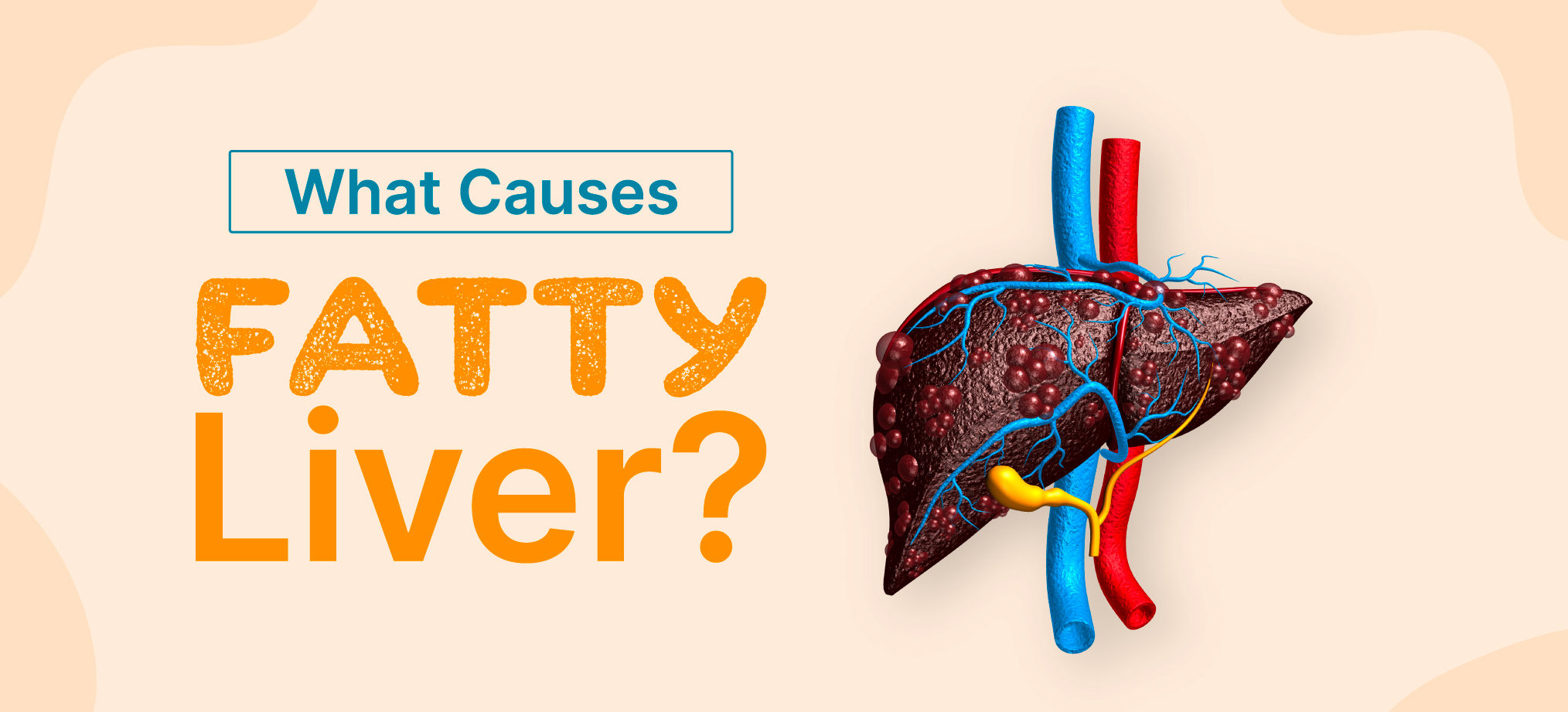
For the most of us who curse the fats in our diet, it is time to revisit your diet plan. Diets high in fat and low in carbohydrates are now largely viewed as being healthier. To be able to restrict the excess intake of either of the two, a good understanding of how each affects the liver is critical.
If you have been diagnosed with fatty liver with little or no inflammation, the condition is also referred to as non-alcoholic fatty liver disease (NAFLD). Apart from restricting a high-carb diet, blood sugar regulation and weight loss are two more essential parameters to deal with fatty liver.
In this article, we'll go through the effects of carbs on the liver, the consequences of ignoring fatty liver, and several easy ways to treat the condition.
Role Of Fats And Carbs
Many people in today's fast-paced culture opt for a diet heavier in carbohydrates because it is more convenient and requires less time to prepare and consume. White bread, milk, fried foods, cookies, spaghetti, soft drinks, corn, and sweets are just a few of the many items that include carbohydrates.
But it is important to understand the basic role distinction between fats and carbohydrates. Let's take a look at the following table
|
Carbohydrates |
Fats |
|
- Carbohydrates are stored as glucose in the liver. |
- Fats are stored in the adipose tissue. |
|
- Excess consumption of carbs increases chances of diabetes and fatty liver. |
- Excess consumption of fats increases the risk of heart problems and brain stroke. |
|
- Carbs provide energy |
- Stores energy for usage when needed |
To summarise, it is the carbohydrates that contribute largely to a fatty liver and not fats! If a person consumes an excessive amount of carbohydrates, they will eventually develop the non-alcoholic fatty liver disease (NAFLD). How? These substances are stored in the fatty cells of the body and also accumulate in the liver. Over time, it leads to insulin resistance, which in turn raises triglycerides and stimulates the liver to take in more fat.
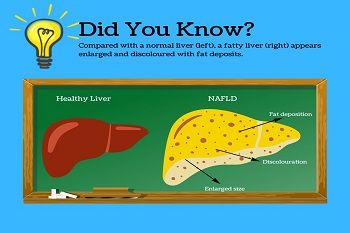
|
Did You Know? 40% of Indians suffer from non-alcoholic fatty liver. |
Watch this video about “How to Treat a Fatty Liver” by Dr. Sarath Chandra
What Happens if Fatty Liver is Not Controlled?
The fatty liver starts to develop if the bulk of your diet is carbohydrates. Moreover, the sedentary lifestyle that desk jobs have plagued us with, only adds to the liver distress. To categorise the level of development of fatty liver, they are generally grouped under two grades:
- Grade 1
- Grade 2
The good news is that your fatty liver can be readily reversed by undergoing lifestyle modifications. Following a diet plan that focuses on your daily activities and eating habits is all that is required without any need of medication.
But if ignored and left untreated, the same can progress to cause serious damage and scarring of the liver. To name a few precipitating disorders where the underlying factor is fatty liver are:
|
Did You Know? NAFLD is one of the main risk factors for developing liver cancer! |
- High cholesterol
- Metabolic syndrome
- Polycystic ovary syndrome (PCOS)
- Sleep apnoea
- Type 2 diabetes
- Thyroid problems
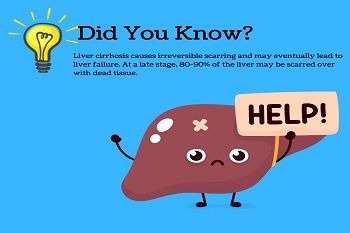
Tips to Reverse Fatty Liver
It is possible to reverse NAFLD by making changes to your daily diet chart and lifestyle in general. A timely intervention to prevent further complications may take control and perhaps reverse the disease.
1. Try Mediterranean Diet
It is a diet high in antioxidant content with greater emphasis on heart-friendly fats. The reduced carb intake in the diet allows for better functioning of the liver by reducing the amount of fat accumulation.
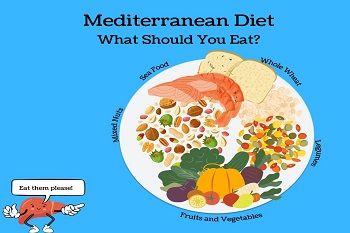
2. Eat The Right Fats
Consume meals that are high in omega-3 fatty acids and monounsaturated fats (like peanuts, avocados, pumpkin seeds and hazelnuts) to improve your insulin levels and reduce the amount of fat that your liver stores as a result.
3. Get Rid Of Unwanted Weight
Fat accumulates in the liver as a result of being overweight; reducing weight helps in accelerating the reversal process.
|
Did You Know? Getting your weight down is the most effective way to manage or even reverse NAFLD. While a 10% reduction in body weight would be ideal, a 3-5% reduction can still have a positive effect on liver function. |
4. Restrict Your Alcohol Intake
Indulging excessively in drinking has obvious threat signals to the liver. Daily consumption of alcohol can significantly contribute to hepatic fat build-up.
Now that you are aware of the fact that fatty liver can worsen without treatment, it is advisable to schedule a consultation with a hepatologist to seek in detail advice. It is always prudent to keep health as a priority because everything else can wait.
With the availability of diagnostic tests like lipid profile, liver enzyme, and liver function tests besides various liver imaging techniques. You sure have no reason to blame yourself for ill health!
Book a Liver Function Test Now
Final Note
We're all well aware of the vital role the liver plays in maintaining our health. However, given the culture of fast food in our society, the prevalence of fatty liver is increasing every day. But if there is a zeal to enjoy a life that is fatty liver-free, our health information blogs around it are just a click away.
Talk to the top hepatologists at Apollo to find out more about fatty liver.
Medically Reviewed by Dr. Dhanunjay Reddy B
General Health
Leave Comment
Recommended for you
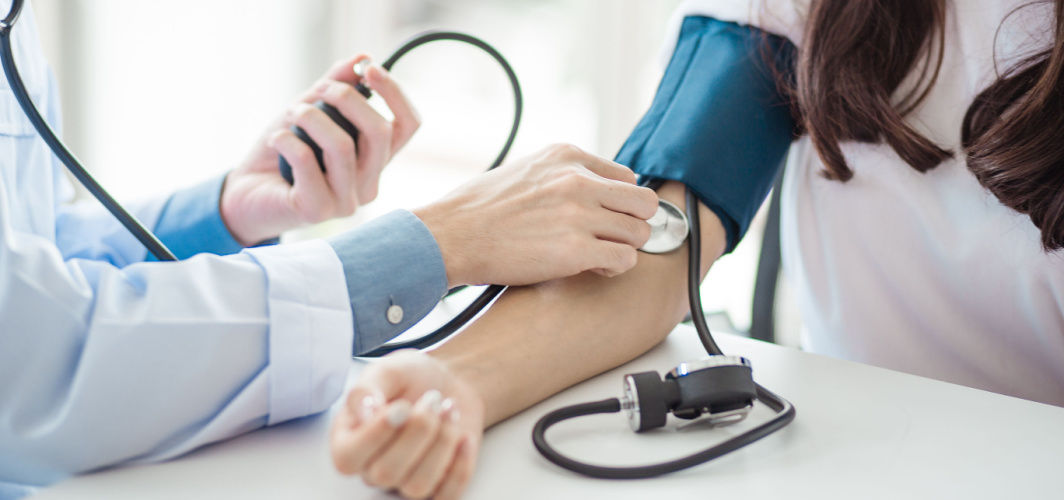
General Health
Can Strength Training Manage High Blood Pressure?
According to a recent study, it has been noticed that strength exercises can be effective in improving your blood pressure. It can further help in reducing the risk of acquiring cardiovascular diseases like arterial hypertension by improving your heart rate and efficiency.
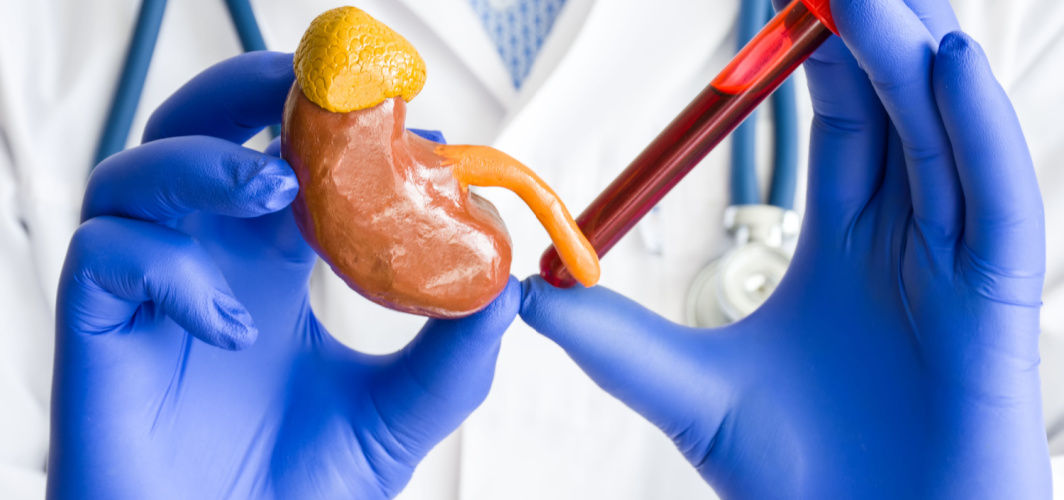
General Health
Tests to Determine Kidney Function
Learn about kidney tests, including their importance, types, and what the results mean. Stay informed about the latest guidelines and technologies to maintain optimal kidney health.

General Health
Apollo 24|7’s WhatsApp To Order A Boon For Users! Ordering Medicines Is Now Effortless
The WhatsApp to Order feature is increasingly becoming popular among the masses for the ease of ordering medicines online. It also simplifies the process of booking a lab test online.
Subscribe
Sign up for our free Health Library Daily Newsletter
Get doctor-approved health tips, news, and more.
Visual Stories

Science-backed Home Remedies for Burns and Blisters
Tap to continue exploring
Recommended for you

General Health
Can Strength Training Manage High Blood Pressure?
According to a recent study, it has been noticed that strength exercises can be effective in improving your blood pressure. It can further help in reducing the risk of acquiring cardiovascular diseases like arterial hypertension by improving your heart rate and efficiency.

General Health
Tests to Determine Kidney Function
Learn about kidney tests, including their importance, types, and what the results mean. Stay informed about the latest guidelines and technologies to maintain optimal kidney health.

General Health
Apollo 24|7’s WhatsApp To Order A Boon For Users! Ordering Medicines Is Now Effortless
The WhatsApp to Order feature is increasingly becoming popular among the masses for the ease of ordering medicines online. It also simplifies the process of booking a lab test online.